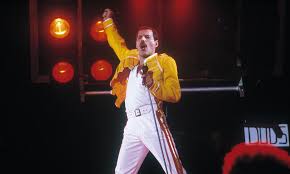- Describe a time when you traveled by public transportation.
- When you traveled
- Where you traveled
- What the purpose was of your travel
- How you felt about it
- I hardly use public transportation in my life because I drive wherever I want to go
- However, when I have to go somewhere in distance, I mean in the other city or state, I use public transportation. Maybe a train or an air-conditioned cozy bus
- I did my undergraduate degree from Baroda, which is around 100 kilometers from my home
- I am from Ahmedabad but studied there, so I’ve many of my friends in this city
- Sometimes we friends decide to meet each other, and either they come to my place or I travel to Baroda
- I can always drive to Baroda, but I feel using public transportation is rather convenient, and we’ve an inter-state bus service run by the government. This facility, I guess, is the best in India as you get a super comfortable coach of Volvo Buses
- In fact, I traveled to Baroda last weekend as one of my friends who works for Wipro came home to have a mini-vacation of four days
- He called me up to check on my and others’ availability to catch up. Initially, I refused to join as I had a family engagement for a social cause
- However, that engagement got canceled for some reason, and then I called him up to express my desire to join at night
- Cool! The plan was made along with other friends, and I traveled
- Traveling by bus from Ahmedabad to Baroda is always a pleasant ride. We’ve an expressway, so within 45 minutes you arrive at Baroda once the bus hits the expressway from Ahmedabad
- Luckily, this time I enjoyed more because I happened to make a new friend who was sitting by me
- This guy is working for a large corporation in the finance department. I did my degree in finance concentration, and I also work in the accounts and finance department for my company
- We began a casually chitchat only to switch it to the financial world later. This fella has tremendous know-how about the financial world, so there was something to add to my enlightenment (=knowledge) from him
- As said it before, the trip to Baroda is short with a comfy ride, so time went by quickly, and we both cursed to the shortest time for our discussion
- In the end, along with the ride, I happened to make a good new friend
2. Describe a foreign country (culture) you want to know more about it.
- Which country it is or which culture
- Where it is
- How you know about it
- Why you want to know more about it
- I am always keen on learning new cultures and exploring countries
- It is fun and exciting to experience something different and eccentric (=strange, outlandish, bizarre) from our own culture or country
- While I was young, I formed a habit of watching Discover TV station, and, in fact, from there I got inspired to learn about new countries
- I personally like to explore more on the North American culture, and Canada as a country as I’m planning to migrate there. It makes sense if I know a bit about their culture so that I could integrate into Canadian society smoothly
- Apart from watching Discovery TV station, I grew up watching English movies, which reflected mainly British, American and European culture in most cases
- We hardly know about Canadian or Eastern European culture through Hollywood movies, and that’s understandable, too because, in the last fifty years, Americans and Britons have dominated all walks of our life
- My aunt has been living in Canada for the last 8 years, and she always speaks good about its natural landscape, magnanimous (=altruistic, charitable, selfless) people, cosmopolitan culture, values and ethics and what not
- The Canadian society believes in egalitarian (=democratic, equitable), social equality, and peace. Canada is also known as one of the most peaceful countries on earth. You hardly hear any news of racial discrimination, violence, or vandalism (=mischief, ravaging)
- Whenever I watch any video on a TV station or on YouTube, I get astonished to see the beautiful landscape and not forget their 11 natural wonders. They are simply breathtaking (Niagara Falls, Cabot Trail, Moraine Lake, Gross Morne National Park, Mingan Archipelago, Hopewell Rocks, Haida Gwaii, Dinosaur Provincial Park, Nahanni National Park Reserve, Crooked Trees, and Northern Lights)
- I guess, liking for the North American culture and place of living enthused me to explore all the good about it. I have recently started to read about their magnificent visual arts and literature. Compared to Americans or Britons, Canadians are not much known for their movies or music, but they are very popular for Ice Hockey. It is just like Cricket in India. Canadians are diehard (=zealot, fanatic) fans of Ice Hockey. About cuisine, most Canadians come from Europe and indigenous people, so the most part of Canada offers a plethora of European cuisines dominated by French, Italian, Scottish, and English
Follow-up questions:
- What do you think is the best way to learn foreign culture?
There are many ways to learn about the foreign culture in this digital world. In the past, we had tourism tabloids, books on tourism, regular books, or newspapers. They were the main source of our enlightenment (=knowledge). But this thing has changed in the last two decades. Now, we have digital media such as government websites directing to their different departments for viewers. YouTube has become the primary source of gathering information on any culture or country by viewing. I believe that more than reading when we visualize any video, we generally never forget. That said, the best way is to go and visit the country that you like. This way not only do we learn about their culture but also feel it. And, it’s like a treasure that you always cherish (=admire, adore, care for) in your life.
- What do you think is the biggest problem to work in a foreign culture?
The biggest problem that people face is the language when they are in other countries while working. For example, if you’re in Germany, you do better if you’re proficient in the German language. People master their native language, and it’s a natural process. It takes years and massive efforts to get command over other languages. Those who do it are the ones who deserve a lot of admiration. Apart from this, sometimes it’s hard to integrate into the local culture due to varied beliefs, customs, and lifestyles. To substantiate (=affirm, confirm, corroborate) this point, I would like to draw another example. We, Indians, generally don’t eat beef. Now, when you are in Europe or North America, it’s their regular food. Because of this, sometimes we tend to link the habit of the host country to our customs. And, we find a total disconnect. It doesn’t mean that they are bad people, but we need to reconcile (=accommodate, harmonize, integrate) with this fact and move on.
- Some people say that reading is the best way to learn about a culture. Do you agree? To most extent, I agree with this statement. Reading is a great source of enlightenment and to learn about alternative views in life. As I said to you before, in the past, we had only one source to know about new things was reading. Reading enjoyed a monopoly of disseminating (=advertise, publicize, propagate) information over the centuries, but it has been challenged by the digital world these days. I personally love reading books, and I would give thumbs up to this idea, but not all people may agree with me.
3. Talk about a toy you liked in your childhood.
- Which the toy was
- Who gifted/gave it to you
- How often you played with it
- You’ve brought me back to my childhood, which I always treasure
- In my childhood, I was gifted and given too many toys as I grew up. I was really pampered and spoilt child of my parents who always brought me any toy that I had wished when I was little
- In fact, I can go on talking about several toys with which I grew up
- Today, I’m gonna talk about a toy with which I always felt connected and today also, I’m connected with it in another way
- I was always fond of cars, so my parents, at times, brought me the collection of truck and car toys
- I enjoyed moving them, hoping that one day I would be driving these cars, too
- I remember my father bought me a diecast model car, which was a Porsche replica
- It was remarkable. It was red in color; had three openable doors, tail with front and rear light, engine cover, and music embedded with the remote control for maneuvering my drive. Additionally, it also had a feature of realistic engine sound
- It was beautifully designed and a pure counterfeit of Porsche, but a toy only
- With the remote control, I could pull it backward and forward and stop at my will
- I always felt as if I were driving this beautiful car and always boasted of this toy among friends. Plus, it was made of metal and slightly heavier than other toys
- So, typically, it was boy stuff during my childhood
- We weren’t allowed to bring any toy to school, but I would stash (=hide) in my schoolbag someday and took it to school because I always felt proud of having it. Additionally, my friends also insisted on bringing this little creature for their fun
- I remember having played with this car almost every day
Follow-up questions:
- What is the difference between girls’ and boys’ toys?
Well, it’s hard to differentiate what girls and boys like when they’re young. Take a model car as a toy, girls also liked it when I was in my school. I guess girls like more dolls, wind-up toys, puzzles, dollhouses, or perhaps cubs nesting, while boys love having construction toys, colored-pattern blocks, cars, and popular fictional characters with their weapons and sets of people and animals. It’s just a thought, and I don’t how far it’s true.
- Do you think toys really help in children’s development?
Certainly, it’s true. A good toy can be used in more than one way. With toys, children can challenge their imagination, which is useful when they grow up. Children develop thinking skills. For example, they learn directionality by turning puzzle pieces so that they fit together. They also develop socially, emotionally, and physically. I can quote another example of physical aspect to make my point. Kids can practice visual skills by playing with a set of stacking rings. Now, such a visual skill could be handy for them if they aspire to become pilots or joining the Air Force for their country.
- Does modern technology have an influence on children’s toys?
Yes, it does. Before modern technology was incorporated in toys, the toy industry like the fashion industry was always fast-moving. Popular and sought-after (=attractive, famous, beloved) toys get run over by new ones every year. With modern technology, now children have ample choices for the toys to choose from. But if we look at this point positively, today children have toys of better educational values that improve their several skills. Hence, I see it as a positive development, overall.
- Have we lost our hand skills such as sewing?
I guess we’ve lost it for many reasons. People hardly have their clothes stitched these days. In the past, it’s a usual sight that our mothers sew something for their children, but gone are those days now. Additionally, I believe that people had a peaceful life in the past. I mean neither people had more job opportunities nor were they much ambitious. In this modern time, the world is connected to every good or bad news, and the digital world has influenced the minds of people greatly. So, you see everyone is in the race of catching up others. In this scenario, people give a lot of importance on ready-made stuff in order to save time. The countryside yet has some life left for such skills to harness, but people living in cities have seemed to have made these skills obsolete (=out-of-date, archaic).
- What toys are popular with kids in India today?
I’ve really no idea about this because there’s no child in my family. But, let me guess which toy could be a darling to our children these days. I guess children love miniatures of popular fictional characters, such as Superman, Batman, and others. I am also pretty sure they must be liking electric cars, puzzles, block-building toys, construction toys, and educational toys.
- Do children today have many toys in general?
Yes, I’m sure about it for many reasons again. Today, we’ve several toys available in the market. Thanks to consumerism. Plus, purchasing power has increased exponentially all over the world, especially in my country. Therefore, I assume children of today are luckier than we are.
- Do you think playing with electronic toys has a good influence on kids?
I think so. Take electric cars, children drive it using the remote control, and they learn how to maneuver it. When they grow up, this childhood experience helps them learn to drive the car quickly. Some electronic toys are designed to educate children on varied matters. So, when they grow up, childhood learning leaves an ever-lasting image on their brains. In Japan, most children have a robot as a toy, so children tend to learn many good things from it. In my country, we’ve not seen such a culture but we’re not far away from it, and I foresee this to come in the years to come.
- Do you think some toys are only suitable for girls and some that are only suitable for boys?
I don’t think about its suitability, but manufacturers have ways to target gender when it comes to selling things. It also happens with children as well as with adults. Some companies smart enough to design some toys, which become favorite in a particular gender. For example, the Barbie doll is the most popular in the world, and most girls have grown up having it. When they’re young, they love to talk to her, dress her, comb her and whatnot. In a similar vein, boys grow up having the miniature of soldiers and fictional characters, and they feel associated with them.
- Which do you think is better for children, to play with toys alone or with other kids?
I think both have their merits for the development of children. With toys, they enjoy in a different world. I mean they feel as if they are living in a utopia (=paradise) world where everything is perfect and happy, whereas, with kids, they tend to learn what the relationship is all about, discipline, helping others, and get helped, too. Both good and bad experiences with other children are building blocks to their real-life later on.
- Do you think parents should encourage their children to share their toys with other kids?
Yes, I greatly support this notion. Sharing toys with other kids at a young age inculcate (=impart, indoctrinate, instill) a sense of giving and sharing, which could be the most sought-after (=attractive, famous, beloved) quality in a relationship.
4. Describe an advertisement you remember well.
- Which advertisement it is/was
- When and where you saw it
- What happened in it
- Advert! I will certainly like to recount the creative adverts of Seagram’s Imperial Blue because they’re really very hilarious and have tickled many ribs over the years
- ‘Men will be men’ campaign focuses on how men either try to impress a pretty girl or how they get overjoyed when their wives are away from them. It’s sometimes misogynist (=sexist) also, but it always gives a smile on your face when you see the expressions of men in the advert
- I remember this advert well because it is incredible, and I happened to watch it the first time when I was having a party with my friends at someone’s place some years ago
- This Seagram company keeps coming with new creative adverts time after time, and all of them are impressive
- But I would like to say about the one advert, which featured two years ago
- There’s a pretty lady waiting for her floor to come in the elevator (=lift)
- She is talking to someone over the phone, and there are two guys tucking in their protruding (=bulgy) belly to impress this girl
- And there’s a funny ‘Gazal’ is being played out in the background, and those expressions of that girl in the advert are worth millions of dollars
- So, the moment that girl arrives at her floor and moves out of the elevator, the bellies of these two guys get back to their actual shagging shape
- I mean it may not sound hilarious when I describe it, but when you watch it, I’m sure you will burst out laughing. Absolutely funny!
Follow-up questions:
- Why do some people hate advertisements?
Well, there could be many reasons for it. First of all, I think you don’t enjoy every advert that comes on the TV or by any platform. Sometimes, they distract you from your watching pleasure or enlightenment process. For example, when I watch any video that makes me busy for some good reasons, and you’ve an unwanted advert, which disturbs you. Secondly, at times, these commercials hijack the prime time of your watching, and you don’t like to switch the station again and again. Lastly, I believe that we enjoy only those adverts which address our needs. I mean if I am up for buying jogging shoes for myself, I won’t be disturbed if there are commercials of selling shoes because I am in the middle of making my decision. Or I would enjoy the advert if it has some funny content or creative ideas. For example, the one I discussed with you about Seagram’s ‘Men will be men’ campaign won’t bother me but not all.
- Do people usually buy stuff after watching advertisements?
I guess, yes. Commercials always influence the minds of consumers in general, and that’s why the advertising industry is huge and employs tens of thousands of people in the world. Some large corporations have a unique way to sell their products by attractive adverts by various means. For example, Nike patronizes the world athletes in his adverts. In India, they endorse popular cricketers such as Virat Kohli or MS Dhoni on their giant hoardings. We, Indians, love cricket and our heroes, so the moment we see these heroes in the advert, we start getting associated with them instantly. This is an amazing way to do business and to endorse the spirit of sports, as well
- Is music useful in the advertisement?
To some extent, I guess it makes sense. I think there’s an overall package for any commercial to become popular in the digital arena. Everything plays a vital role, be it acting, actor, setup, background music, expressions, message, and so on. Anything that’s disconnect will send the advert in the trash.
- What are the advantages of TV advertisements? How about internet advertisements?
There are plenty of advantages of adverts associated with the TV medium. Most Indians use TV as an entertainment or enlightenment medium. So, commercials on TV stations help all sizes of corporations to improve their top line and bottom line. They design adverts in such a manner that it prompts viewers to buy their stuff. However, this medium of adverts is being challenged these days by the internet and the over-the-top (OTT) media services.
We have experienced the rapid growth of the OTT media. YouTube, NetFlix, and Amazon Prime are the biggest beneficiaries of this technological revolution. Hence, many companies have diverted a huge amount of their marketing expenditure to this new platform. I’ve no data that which platform is ahead of the others; I mean TV watching or OTT usage. But I’m sure that there are people in great numbers who choose the OTT platform than TV. And, yes, internet adverts are also as effective and revenue-generating as others for companies.
- Where do we usually see adverts?
Well, I would say everywhere. Whether it’s TV, or the OTT platform, hoarding, search engine, and all other traditional and non-traditional platform, you see we’re being bombarded with adverts. Marketers leave no space for promoting their businesses. At times, it’s frustrating, too. For example, hoardings cover attractive and beautiful spots in your city. And we don’t have an opportunity to witness the beauty of the city in some cases.
- Are there any advertisements at school?
Yes, there’s no doubt. As I said, marketers leave no opportunity to influence the minds of consumers. So is true for schools! Here, they’ve a different approach to infiltrate on the minds of students owing to certain restrictions. For example, any education learning app will organize a free seminar to educate children and parents, and they will offer the subscription free of cost for some time, and you end up buying that product afterward. Because it targets the moldable innocent minds of students, and we know that parents generally surrender to their children’s wishes.
- Are there some inappropriate adverts, like that of a condom?
First thing first, I disagree with the terminology called ‘inappropriate adverts’. All adverts are appropriate as long as they don’t promote nudity, coarse language, or disturbing images. For some reason, people in my country consider the advert of condoms sleazy (=sordid, trashy), but it’s not because it’s the part of our life. It has more benefits to offer than disadvantages. However, my saying or way of thinking doesn’t matter because a large section of people believe that young children shouldn’t watch such commercials. So, the Broadcast Ministry has recently changed the rules for such companies to air their commercials. Now, you have adverts promoting condoms or such other stuff after 10 o’clock in the evening. In the same way, commercials promoting liquor is prohibited in our country. Candidly speaking, I never support any kind of prohibition. It’s like snatching a fundamental right of citizens.
- Why does the government allow such adverts?
My answer to this question is linked to the previous answer of mine. I don’t see it questionable, so the government has prerogative (=immunity, choice) to allow such adverts. It’s not harming society by any means.
- Do you think it is bad for children?
No, I don’t think so. There is a reason behind this. It’s our duty to inculcate (=impart, indoctrinate, instill) manners, etiquettes, values, and morality in children. But, at the same time, what’s needed for our children to learn and understand, we can’t shy away from it or in other sense, we cannot choose and pick our selective narratives. When children grow up, they will, invariably, be exposed to all good and bad things in their life. We need to train them to stay off bad things to brighten their careers. Betting, drinking, sexual explicitly, and all other things will remain in our life. So, why ignore it? Better train them for everything. Maybe, my way of thinking is unacceptable to many, but it’s their choice.
- Do parents complain about it?
Yes, in most cases, they do so. Yet we’ve not developed a culture of accepting certain things in our life. For example, drinking is considered a bad habit. Yes, it’s bad when you drink exceedingly but not when you do it moderately and don’t shy away from your jobs and responsibilities and giving to society. People generally have a habit of painting everything with the same brush. There I have an objection.
5. Describe a person in the news that you want to meet.
- Who he or she is
- What this person showed up on TV for
- How you knew what this person
- Why you want to meet him
- There are many celebrities that I follow in my life. They are from all segments such as news anchors, politicians, sportspersons, actors, singers, comedians, and among others
- Today, I would like to talk about one of my favorite playback singers who is a kind of a household name in Indian society. His name is Arijit Singh
- Arijit Singh has a shy nature, and hardly have we seen him on a TV show ever. But back in 2016, he appeared in one of the most popular chat and comedy shows: The Kapil Sharma Show
- This fella is absolutely down-to-earth and one of those public images who doesn’t believe much in flaunting his skills. It was a rare thing to see him participate in a comedy show
- He’s the most loved and young playback singer in India. He has a wonderful voice texture. Some experts describe his voice as raw and grainy, whereas I think he has a natural voice, and you experience depth in his voice
- Therefore, this great singer requires no introduction, and I’m sure if you ask any youngster in India about this marvelous singer these days, everyone has some positive opinions for him
- Truly, I get mesmerized when I happen to listen to any song of his. He caters to genres, such as pop, ghazal, Indian classical, electronic dance music (EDM), and filmy
- Plus, he is good at playing harmonium, guitar, piano, vocals, and tabla
- I always desire to meet this accomplished guy whenever I have any opportunity. However, it’s hard to meet him because he’s a big name in our music industry now
- I’m keeping my fingers crossed and hope one day I’ll have an opportunity to see this gentleman for sure
Follow-up questions:
- What types of people can be seen on TV? What are the kinds of people do the news usually reports about?
Well, we have dedicated TV stations for types of shows that we would like to watch. We’ve categories such as entertainment, international, infotainment, news, sports, music, and movies. So, it comes down to your choice, first of all. You’ve gotta a wide range of variety to your choice. Ahh, I love sports, music, movies, and sometimes like to stay in touch with domestic and international news, too.
We see all kinds of celebrities. Thankfully, things have changed in the last ten years dramatically and you happen to see the presence of movie actors also on TV. This was not a trend in the past, but things have changed for good. We see sportspersons, actors, news anchors, comedians, politicians, and others.
- Do you think there is too much news about celebrities? What is your take on the news reports in recent years?
Yes, I agree with this. It’s, at times, annoying, too. There’s too much limelight offered to celebrities, and people miss out to know other essential information or news. For example, some news reports discuss what Taimur did. This guy is the son of Saif Ali Khan, and he’s what? Just 2 years old. He’s not a significant personality to discuss. And what will people do with his daily itinerary? Nothing. So, it’s very much irritating to know that the quality of reports has stooped so low these days.
- Do you think negative information in the news can have a negative influence?
Certainly, to some extent. Human behavior typically responds to what happens around him and what people say on any issue. Whether it is right or wrong, but people tend to get influenced in either direction: Positive or Negative. A negative piece of information on the media impacts the viewers greatly. For example, when the pandemic of coronavirus became a household name, everyone was so much scared to step out of the home. The situation needed to stay home, and there’s no doubt about it. But what will we do without our essential goods and services? So, anybody who went out of home was always scared because the moment he returns and watches TV, everything around him was depressing, and people were dying. It does influence heavily.
- Why do people like negative news?
I don’t know the exact reason for this, but it’s true that people, in general, gravitate more to negative news than positive news. Maybe, human beings like excitement, climax, something that’s not usual, or maybe something else. Any bad news that features in any sphere of life, people love tracking and discussing it profusely. That’s the way it is!
- What is usually in the news in India?
First of all, I don’t watch the news much on our television because it has more negative news than positive news. We’ve all types of pieces of news, which range from sports to celebrity news, to domestic and international issues, to some scientific updates, and others.
- Is that information always true?
I doubt that all pieces of information in the news are true. We’ve seen that news is being manipulated everywhere in the world. In most cases, reporters are biased and promote that piece of news that suits their ideologies or agenda. For example, when you update yourself with any piece of news from CNN, it will be quite opposite to what is being broadcasted on RT News. CNN is an American News Station, while RT News is a Russian one. You can clearly see how stories are twisted to align with their propagandas. Sometimes, it’s hard to know who’s right and who’s wrong. Therefore, I personally believe that what you hear or watch on TV may be far from reality.
- What is the difference between broadcasting news in the past and in the present?
Frankly speaking, I don’t have much of the information about how news was broadcasted in the past because I’ve never analyzed this matter. But, based on my assumption, I can say that news that is broadcasted today carries a lot of sensation. I mean sometimes news reporters prosecute some accused virtually before the verdict on that case comes out of the adjudicating body (court). This is worrisome and frightening. I can say that this is a digital prosecution or digital character assassination. I assume that News TV media in the past just described what happened in a plain language and didn’t have their opinions sprinkled on the story. Everyone today has become a self-proclaimed judge or saint on any matter. Specialists in different fields have become irrelevant in this deadening culture of news broadcasting. Journalism is dying!
- Do you believe everything said in the news?
No, I won’t believe anything blindly. To me, it’s very simple: ‘Trust but verify’. If you don’t have such an investigative attitude, you fall into a trap of fake news. What happens these days is people form their perception on the basis of fake news that they get from ‘WhatsApp University’ or ‘Twitter University’. That’s a dangerous precedent (=criterion) we’re setting in our society.
- What kind of news is popular in India?
Indians love to track any news on their beloved celebrities, sportspersons, or any national issues and movie updates. Apart from these regular mentions, any news pertaining to national security, people take a tremendous interest in it. For example, China’s People’s Liberation Army (PLA) intruded our borders, which ensued bloody spat between soldiers from both the ends, resulting in many casualties and injuries. After this incident, people were interested in each and every update of it because when it comes to nationalism, we Indians always show solidarity for our army.
Out of all these updates, celebrities top the index in terms of popularity. Indians love watching movies and idolize their role models. So, this section always gets the maximum attention in the media.
- Are the stories about celebrities in the news always true? Is the news on celebrities mostly positive?
Well, I can’t say that it’s always true but in most cases, they do so. Before any news hits the media, social media websites get active and people get updates, but social media is also a nuisance. In some cases, they are filled with rumors, and those rumors keep doing rounds in our society until the official piece of news or clarification is announced on TV.
I don’t agree that news on celebrities inspires people generally. They are meant for killing time. However, people love to learn more about what’s happening in their life. A very few celebrities leave a solid message on the minds of people, and they are worth knowing. For example, I would be more interested in the piece of news wherein the celebrity has bounced back from the dark time. Like what happened to Yuvraj Singh, one of the legendary Indian cricketers. He was struggling with life and death because of cancer. He fought back and came alive and was also picked up in our regular cricket team which played internationally. Such a piece of news has substance.
- How do you think the celebs in the news can influence adolescents?
I believe that they have a big role in influencing and encouraging our youth. It’s not a choice for them but also an obligation. They’ve become stars because these youth have loved and supported them by watching their movies and idolizing them as their role models. Young children and other diehard fans love to emulate every action and style of them, whether it’s a good or bad habit.
Large corporations rope in celebrities to sell and market their products. Children and the youth when they see their role models doing or endorsing any product, the sales of the same skyrocket in the blink of the eye. Therefore, there’s a great influence of celebs on the youth as far as India is concerned where more than 50% of the population is young.
- Are news reports on the TV in India divided into domestic and international ones?
Some TV stations do but not all. Most TV stations focus on the domestic news, and there are also regional TV stations, which specifically feature local news of the city or town.








